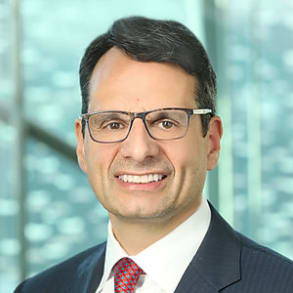David Hackam, pediatric surgeon-chief, discusses the latest pediatric surgery research at Johns Hopkins Children’s Center. Pediatric surgical specialties are gaining worldwide recognition for their innovative research.
Hi, it's an absolute pleasure to talk to you about the amazing research that's going on in pediatric surgery here at the Johns Hopkins Children's Center. First of all, why do research in pediatric surgery? And the answer to that is that if I had a kid that needed surgery, my own child, I'd want my surgeon to be able to think outside of the box to be able to come up with the answers to questions that other people are asking but have not yet answered. And I would want my surgeon to be on the cutting edge of research and the latest treatments and, and that's why we do research. And so let me just highlight a couple of areas starting at the top with brain surgery. Our pediatric neurosurgeons are not just known worldwide for their clinical expertise but also their research. And I'd like to point out the work of Doctor Shenandoah Robinson, whose work on brain protection that is helping little babies brains uh during periods of stress mechanisms of protection so that when they grow up, they can really reach their full potential. This is exciting and innovative work for which she has been recognized. Her team has been recognized and I'd like to point out to doctor Robinson herself, has just been elected as the president of the American Academy of Neurological Surgeons and is the incoming president of the American Society of Pediatric neurosurgery. Just incredible honors another area with which our researchers at the Johns Hopkins Children's Center have gained worldwide attention is in our management of the troy complex. Troy is a condition that babies are born with, which represents some of the most staggering, most, most um uh unbelievably complex uh of all the congenital anomalies that we face for these are conditions in which the organs literally develop outside of the body. And so babies are born with their bladders and their intestines and other organs on the outside. And you can imagine that performing surgery on these Children is some of the complex that any surgeon will ever see. We recently took care of our 15/100 pediatric Troy patient condition. And the research that we're performing in these kids allows us to understand what causes this to develop in the first place and how to manage it in a way that allows these patients to really lead essentially normal lives. The next area I'd like to highlight is our research being performed in pediatric otolaryngology. This is work being performed on pediatric airway management that allows Children who are literally born with problems in their airways so that they're born without the ability to breathe and recently, we held a course here that gained local national and really international attention gathering experts from around the world to share best practices and to learn from our surgeons and how to take care of Children with complex airway anomalies. And our research into the outcomes of these patients is really leading the field in how to take care of some of the most difficult and uh and really um serious problems there in a sense can be no bigger problem for a child than the inability to take that first breath. Three other areas that I'd like to highlight include our work in pediatric cardiac surgery, in tissue engineering and finally, in trauma. You can imagine that babies that are born with congenital cardiac anomalies, that is when the chambers of the valves of the heart fail to develop, normally represent some of the most life threatening conditions that any infant can face. And our team of congenital heart surgeons is not just trying to understand why these problems solve, but how the rhythm of the heart can be optimized and how the function of the heart can be optimized and detected using non invasive techniques so that our congenital heart surgeons can perform the best operations with the best outcomes. Tissue engineering is another area that our pediatric surgeons here at the Johns Hopkins Children's Center have received worldwide recognition and also worldwide grants uh to support this work. You can imagine if the uh parts of the organs fail to develop. There may be a need to engineer a new organ and this is work that we've been leading uh with Doctor Sean Kaki and his team in developing replacement trachea, esophagus and lungs. And finally, pediatric trauma. There's no city in the United States that is not facing an epidemic of violence and trauma. And the uh level one trauma center here, the Johns Hopkins Children Center is leading the way in the management of some of these most difficult patients, uh understanding the best ways to take care of these Children and also performing research in the community so that the epidemic of trauma can be solved once and for all. Thanks for joining me today as we discuss the sampling of research being performed by our pediatric neurosurgeons, which I hope gives you a taste of the world class care that we're performing right here. Thank you.
Related Presenters
